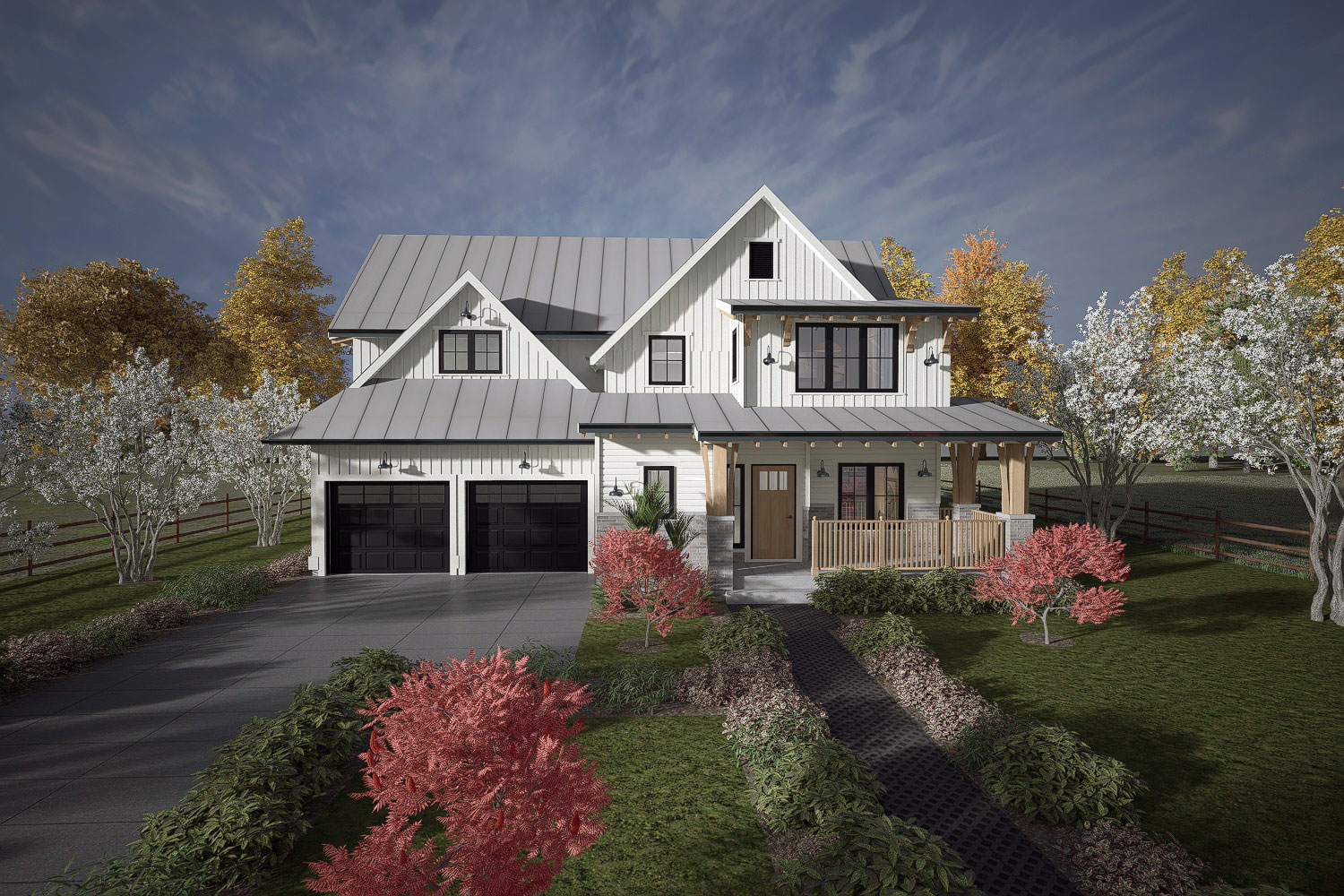
The Rise of Modern Farmhouse Architecture
The Modern Farmhouse architectural style has taken Canada's west coast by storm in recent years, becoming a dominant trend in residential construction. This architectural style, characterized by a blend of rustic charm and contemporary design elements, has a rich history and a set of factors that have contributed to its popularity in this region.
To understand the popularity of the Modern Farmhouse style on Canada's west coast, it is essential to delve into its historical roots.
This architectural style finds its origins in the traditional American farmhouse, which has been a staple of rural America for centuries. Early farmhouses were designed for practicality, featuring simple, functional layouts and materials readily available in their respective regions.
The architectural principles of the American farmhouse were heavily influenced by the colonists who settled in North America. These early settlers brought design elements from Europe but adapted them to suit the harsher North American climate.
Farmhouses evolved with changing needs and technologies, resulting in a variety of regional styles, including the Colonial, Cape Cod, and Southern farmhouses. These designs emphasized functionality, with features like gabled roofs, wide porches, and durable materials.
Modern Farmhouse architecture draws inspiration from its historical roots while incorporating contemporary design elements, creating a unique and appealing style. Some key characteristics include:
- 1. Modern Farmhouses feature clean, crisp lins and a simplified geometric form, often with a symmetrical façade.
- 2. A combination of materials such as wood, metal, brick, and stone adds texture and depth to the design.
- 3. Large Expansive windows and abundant natural light are hallmarks of the style, connecting the indoors with the surrounding landscape.
- 4. Modern Farmhouses often have open and spacious interiors, perfect for modern living and entertaining.
- 5. A neutral color scheme with white or light-colored exteriors and earthy tones inside creates a warm and inviting atmosphere.

The West Coast of Canada has seen a surge in the popularity of the Modern Farmhouse architectural style in recent years. Several factors contribute to this phenomenon:
- 1. The west coast's stunning natural landscapes, including mountains, forests, and waterfronts, resonate with the Modern Farmhouse's emphasis on connecting with nature. Large windows and outdoor living spaces allow homeowners to appreciate the picturesque surroundings.
- 2. The Modern Farmhouse's blend of traditional and contemporary features suits the west coast's diverse climate, accommodating both sunny summers and rainy winters. Its durable materials and well-designed roofs are especially suited to weather the region's elements.
- 3. Many Modern Farmhouses incorporate sustainable design elements, such as energy-efficient appliances, solar panels, and rainwater harvesting systems. These eco-friendly features align with the west coast's commitment to environmental conservation.
- 4. The open floor plans and spacious interiors of Modern Farmhouses cater to the contemporary Canadian lifestyle, offering ample space for families and gatherings. The style's versatility allows for customization to fit various needs.
- 5. As the popularity of the Modern Farmhouse style has grown across North America, builders and developers have responded to market demand by offering a wide range of Modern Farmhouse-inspired homes on the west coast.
The Modern Farmhouse architectural style's popularity on Canada's west coast can be traced back to its historical roots in American farmhouses and its ability to adapt to the region's unique characteristics. Its emphasis on connecting with nature, adaptability to diverse climates, sustainability features, and alignment with the modern Canadian lifestyle have made it a sought-after choice for homeowners.
As this architectural trend continues to evolve, it is likely to maintain its popularity and continue to shape the residential landscape on Canada's west coast.
Joe Rommel
Having designed houses on the North Shore of Vancouver, BC for the last 30 years, Joe is a registered and certified building designer with the Applied Science Technologists and Technicians of BC (ASTTBC).
ReplyLeave a Reply